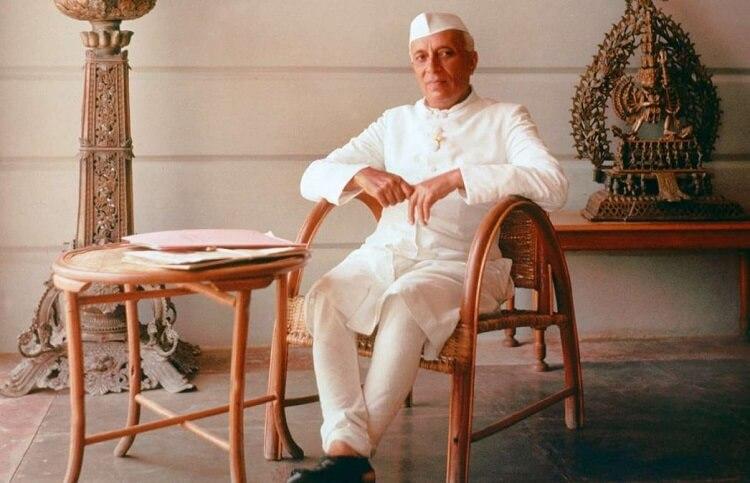India, known for its abundant, cultural legacy, diversity and steadfast commitment to democracy, commenced its venture as a sovereign state on the 15th August 1947. This pivotal juncture marked the appointment of Jawaharlal Nehru as the first Prime Minister of India. Fondly known as Pandit Nehru or Chacha Nehru his progressive leadership played a pivotal role in shaping the trajectory of the nation during his early years of independence.
Who is the Prime Minister?
Prime Minister is the head of the government, whose powers are largely nominal and ceremonial. He is appointed by the President generally for the term of 5 years. The political party who wins a general election, the leader of that political party is appointed as the Prime Minister of India. Effective executive powers rest with the Council of Ministers, headed by the Prime Minister.
The Prime Minster acts as a leader of the house of chamber of Parliament, generally the Lok Sabha. In this role, the Prime Minster is tasked with representing the executive inn the legislature.
Functions of a Prime Minister
- Head of Government: Leads the executive branch of government.
- Policy Formulation: Develops and implements national policies.
- Cabinet Leader: Chairs cabinet meetings and coordinates government departments.
- Legislative Role: Presents bills and policies to parliament.
- Foreign Affairs: Represents the country in international relations.
- Crisis Management: Handles emergencies and national crises.
- Public Representative: Communicates government decisions to the public.
- Advisor to the Head of State: Offers counsel to the monarch or president.
Who is First Prime Minister of India?
Jawaharlal Nehru, India’s first Prime Minister, stands as an iconic figure whose visionary leadership and indomitable spirit played a vital role in shaping the nation’s destiny after gaining independence from British rule.
First Prime Minister of India: Pandit Jawaharlal Nehru
Personal Details:
- Birth date: 14th November 1889
- Birth place: Allahabad, North- Western Provinces, British India
- Parents: Motilal Nehru, Swarup Rani Nehru
- Death: 27th May, 1964 at New Delhi, India
Early Life:
Jawaharlal Nehru was born on November 14, 1889, in Allahabad, India, to a prominent family. He received his education in England and returned to India to join the freedom struggle against British colonial rule. Nehru’s early life was influenced by his exposure to nationalist ideals and his family’s active involvement in India’s independence movement.
Jawaharlal Nehru as 1st Prime Minster of India
Jawaharlal Nehru became the first Prime Minister of Independent India on August 15, 1947. As Prime Minister of India, he played a crucial role in shaping the nation’s policies and governance. Nehru’s leadership focused on nation- building, socio-economic reforms and promoting secularism and democracy. He championed industrialization, agrarian reforms and the establishments of institutions like the Planning Commission. Nehru’s foreign policy emphasized non-alignment and peaceful coexistence. However, his tenure faced challenges including the integration of princely states, conflicts with Pakistan and the Indo-China border dispute. Despite these challenges, Nehru’s visionary leadership laid the foundation for India’s growth as a modern, democratic nation. He served as Prime Minister for the consecutive 17 years until his death on 27th May 1964.
Awards presented to First Prime Minster: Jawaharlal Nehru
Jawaharlal Nehru, the first Prime Minister of India, received several prestigious awards, these are:
- Bharat Ratna in 1955
- Lenin Peace Prize in 1955
- Order of the Yugolsav Star in 1954
- An award was also named after him, Jawaharlal Nehru Award for International Understanding, established in 1965.
Institutions named after 1st Prime Minister: Jawaharlal Nehru
Several colleges and institutions named after him. Some of these are as follows:
- Jawaharlal Nehru University
- Jawaharlal Nehru Technological University
- Jawaharlal Nehru Medical College
- Jawaharlal Nehru Centre for Advanced Scientific Research
- Jawaharlal Nehru Architecture and Fine Arts University
- Jawaharlal Nehru College of Engineering
List of Former Prime Ministers of India (1947- 2023)
The current Prime Minister of India is Narendra Damodardas Modi, serving as Prime Minister since 2014.
| S. No. | Name | Tenure |
| 1. | Jawaharlal Nehru | 15 August 1947- 27 May 1964 |
| 2. | Gulzarilal Nanda | 27 May 1964- 9 June 1964 |
| 3. | Lal Bahadur Shastri | 9 June 1964- 11 January 1966 |
| 4. | Gulzarilal Nanda | 11 January 1966- 24 January 1966 |
| 5. | Indira Gandhi | 24 January 1966- 24 March 1977 |
| 6. | Morarji Desai | 24 March 1977- 28 July 1979 |
| 7. | Charan Singh | 28 July 1979- 14 January 1980 |
| 8. | Indira Gandhi | 14 January 1980- 31 October 1984 |
| 9. | Rajiv Gandhi | 31 October 1984- 2 December 1989 |
| 10. | V.P. Singh | 2 December 1989- 10 November 1990 |
| 11. | Chandra Shekhar | 10 December 1990- 21 June 1991 |
| 12. | P.V. Narasimha Rao | 21 June 1991- 16 May 1996 |
| 13. | Atal Bihari Vajpayee | 16 May 1996- 1 June 1996 |
| 14. | H.D. Deve Gowda | 1 June 1996- 21 April 1998 |
| 15. | Inder Kumar Gujral | 21 April 1998- 19 March 1998 |
| 16. | Atal Bihari Vajpayee | 19 March 1998- 22 May 2004 |
| 17. | Manmohan Singh | 22 May 2004- 26 May 2014 |
| 18. | Narendra Modi | 2014- present |



 Indian Olympic Medal Winners List Till N...
Indian Olympic Medal Winners List Till N...
 Who is the Inventor of the Gramophone?
Who is the Inventor of the Gramophone?
 HS Dhaliwal Appointed New DGP Of Andaman...
HS Dhaliwal Appointed New DGP Of Andaman...
